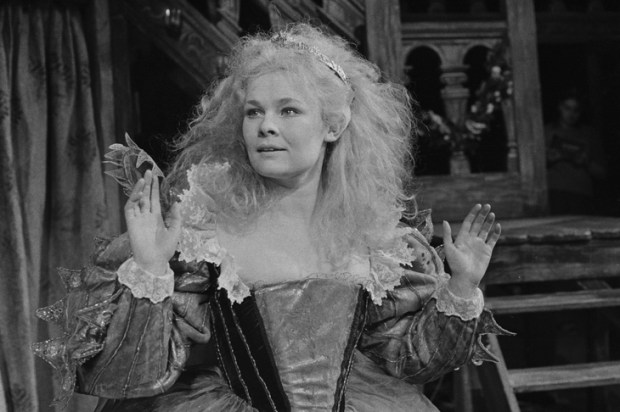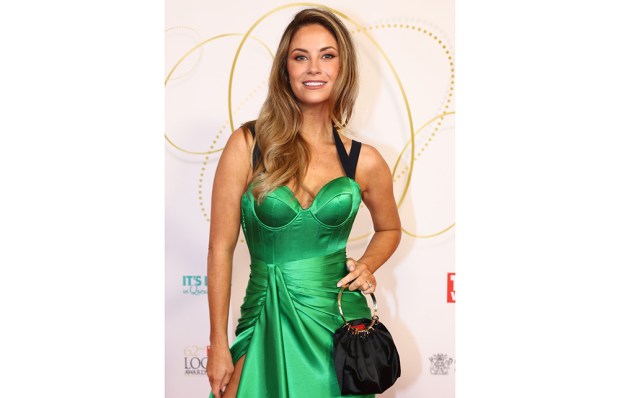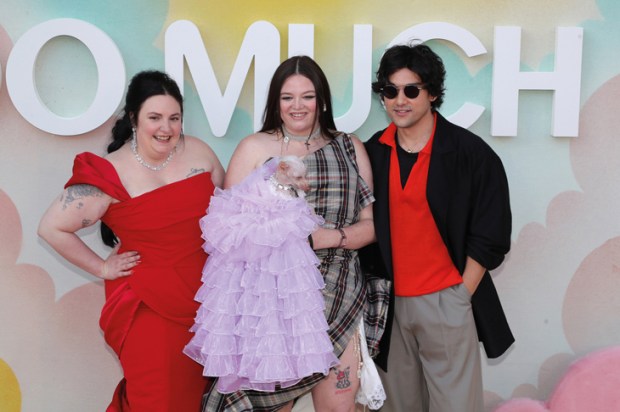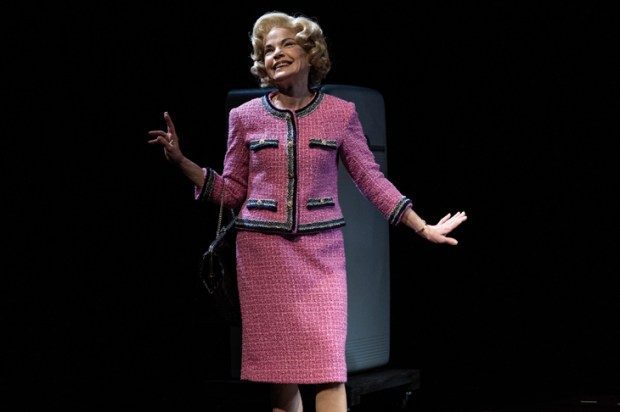There’s something horrifying about Monsters, the Netflix streamer about the Menendez brothers who, back in 1989, murdered their mother and father and whose abiding defence was the level of sexual (as well as physical and emotional) abuse they were subject to. The various trials were too ghastly for any sane mind to remember them. The case was so riveting in its horrorlines that the recollection seemed to black out. There is the remote memory of that great critic and essayist Elizabeth Hardwick talking about it in The New York Review of Books (a strange voice for such a bizarre subject) and then the voice of Johnnie Cochran – who had appeared for O.J. Simpson – saying that it was a gross slander on people who had been abused without killing their parents to suggest its possibility as a defence.
Beyond that it’s all too horrible for detailed remembrance. And it has to be said that this TV re-animation starts out as woefully slapdash, then grows in power and sometimes achieves a staggering intensity even if parts of it recurrently fall into pits of incoherence.
The murdered parents – and the murder itself is depicted with gore and savagery – are played by Chloë Sevigny and Javier Bardem.
Bardem plays José Menendez as an utterly sadistic monster of sexual abuse not only forcing sex of every kind on his two sons but using implements on them in any way his demon capacity for horror can invent. It is an extraordinary characterisation of incarnate evil and Bardem invests the character with credibility even when the script makes him a kind of cartoon.
But we believe it all, never mind the elementary articulation. We can only take the horrors as emanating from the mind of the series as a whole. Nothing else makes sense at all and there is the central ambivalence of monster sons avenging themselves on monster parents.
But if there is cartoonery in the characterisation there is also drama of the highest order. When Erik, the more mild-mannered brother, gay and understated, tells his story it is presented with one camera in an incredible single take, and Cooper Koch’s performance is staggering powerful.
His brother Lyle (Nicholas Alexander Chavez) is a different kind of creature, histrionic and spoilt, but he is not unconvincing and in fact moving when he says he inducted his brother into the ritual of sexual abuse, duplicating what his father had done to him.
But Lyle allows a journalist to interview him and explains his command of tears and grief as an artful act. Does this mean the stories of the grossest abuse are a concoction? The streamer toys with this but only dabblingly and incoherently.
If the stories were simply made up this miniseries would have no point at all and would be simple exploitative drivel of the most indefensible and feeble kind.
One of the more distinguished cast members in Monsters is Nathan Lane (whom we know from the musical version of The Producers and for his performance in the National Theatre’s production of Angels in America where he played Roy Cohn). Nathan Lane plays Dominick Dunne, the chronicler of celebrities whose daughter was murdered.
It’s a fine, ironic, nuanced performance and although he’s gunning for the Menendez boys he says at one point that if they were subject to this abuse then who could blame them for the killings.
Later however, he says he’s ceased to be bothered with the young killers.
Monsters compresses the sequence of the trials and it also – rather repellently – introduces the possibility of execution in the gas chamber.
Monsters is a weird bewilderment of a horror show and it’s inevitable that we should wonder if these trials could ever have been brought in the age of #MeToo.
Nor does it help that pushing this reflection too far would lead to the justification of murder. Monsters plays with these perspectives untidily, sometimes sickeningly and it also comes with some fraction of mistakes. No one said, ‘my bad’ in 1990 when the events depicted here took place (or could be imagined taking place).
Don’t get me wrong. The best of Monsters has an electrifying power that consorts oddly – a bit jarringly – with the way it plays with grave and terrible elements.
At the end of the day a quality of mitigation enters the field of consideration as how could it not. But this streamer is a bit implicated in the headline ambiguity of reducing its terrible story to a comic book technique.
The defence counsel is overruled time after time by the trial judge to the point of absurdity where we feel we’re watching a pop version of a story that barely justifies the telling even if it is impossible to avert your eyes while it is being told.
Who could tell the Menendez story and do it justice bearing in mind what a looming atrocity justice becomes in this dark distorting mirror? The Fritz Lang of M, the Fassbinder of Berlin Alexanderplatz? It would certainly be fascinating to see it done as a dramatic doco in the manner of the original The Staircase by the great French documentarian Jean-Xavier de Lestrade.
There is some truth after all in the idea that where truth is stranger than fiction only a factual presentation can do it justice. One lawyer who knows his evidence says the Menendez brothers were obviously abused. Given that simple monumental fact this strange warped story requires all our attention and our capacity for sympathy.
On premodern maps of the world the sign for the unknown lands was ‘Here be dragons’. At its not infrequent best the Menendez saga has a dynamism and a sense of mythical unknowable horrors that will confront you with your capacity to look into an abyss for which we have no names.
It would be wrong to give away the plot of Monsters. It is the work of Ryan Murphy who did brilliantly with Nip/Tuck in the 1990s – which had Australia’s Julian McMahon (the prime minister’s son, not the silk) as one of the plastic surgeons – and went on from there to Glee and later to American Horror Story and the seven-hour The People v. O.J. Simpson.
Netflix is now showing a doco about the Menendez case which suggests that the trial reflects ‘a belief system that males were not sexually abused, and that males experienced rape trauma differently than women’.
Got something to add? Join the discussion and comment below.
You might disagree with half of it, but you’ll enjoy reading all of it. Try your first month for free, then just $2 a week for the remainder of your first year.













